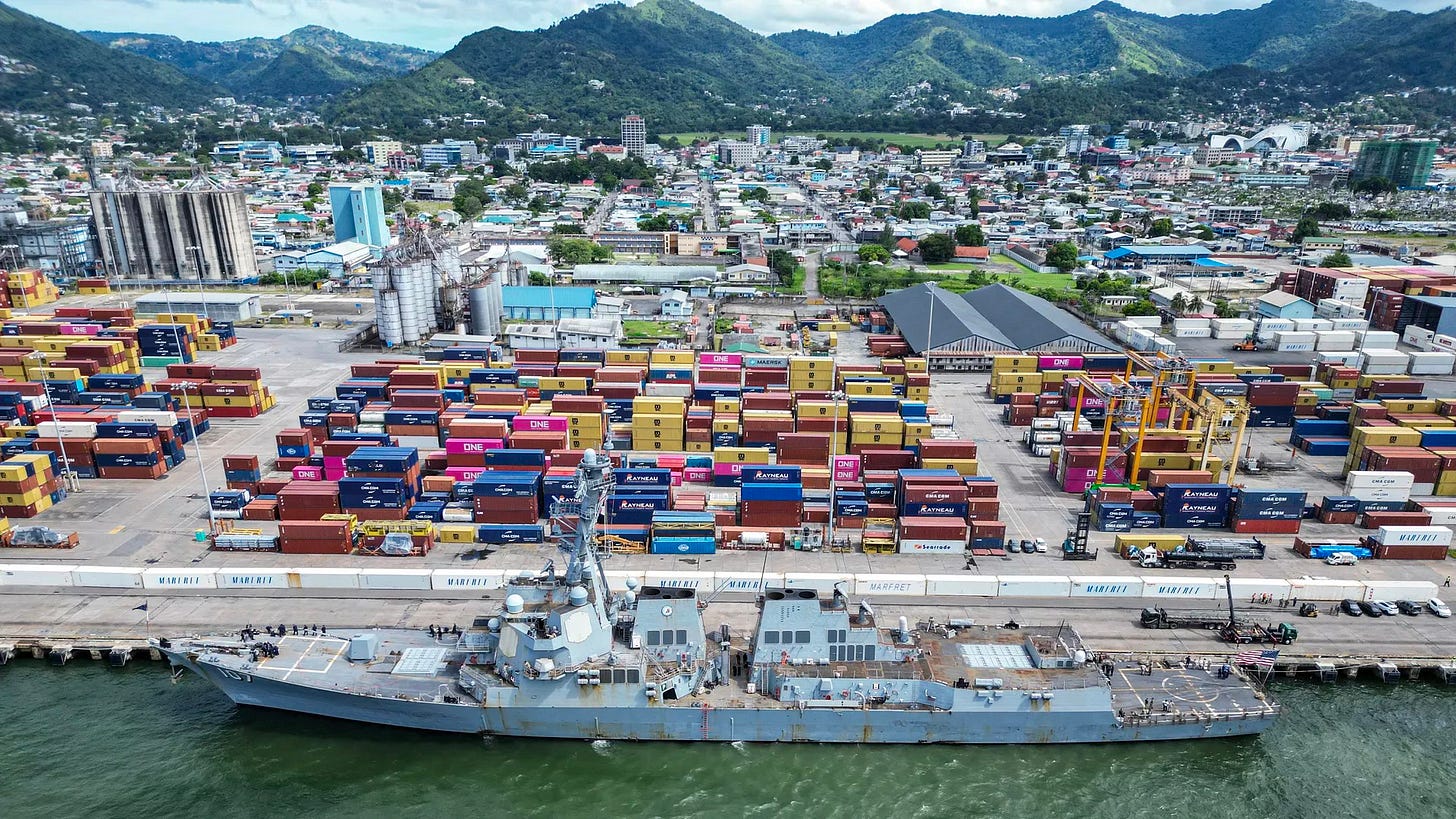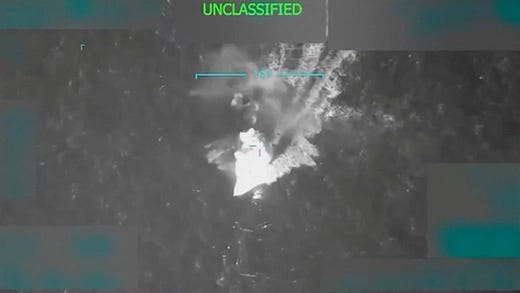What's Happening in Venezuela?
Looking for a plan in the posturing
Donald Trump’s second term has brought a big return to power politics in the Western Hemisphere. Venezuela is now the main stage. Under what Trump calls a “new war on drugs,” the United States has sent warships, bombers, and special forces to the Caribbean. It is America’s largest military buildup near Venezuela since the 1989 invasion of Panama. Officially, it’s about stopping drug smuggling. But it’s also about showing strength close to home and warning rivals that the U.S. is once again asserting control in its own neighborhood.

The “Narco-Terrorist” Label
The Trump administration has cast Venezuelan president Nicolás Maduro as a “narco-terrorist.” The Justice Department even charged him and fourteen top officials with running a criminal network that smuggles drugs and launders money. The charges fit into a broader political story: portraying Maduro not just as a dictator, but as a global criminal threat.
Independent analysts say there’s truth behind the claim: Maduro’s regime profits from illegal gold mining, drug trafficking, and deals with guerrilla groups. But that’s also how it stays in power. The country’s economy has collapsed, and these black-market revenues keep loyalists fed and the military paid.
Calling Maduro a terrorist gives Washington a legal pretext for extreme measures. The U.S. has used drone strikes to destroy suspected drug boats near Venezuelan waters, actions that look more like military operations than police work and are. It’s a legally shaky move but politically useful: it lets Trump project toughness while avoiding a formal declaration of war.
Coercion Meets Pragmatism
Even as Trump escalates militarily, his government has eased parts of the old “maximum pressure” campaign of punitive sanctions. The White House quietly allowed Chevron and Shell to restart limited oil operations in Venezuela. It’s a practical shift that is less about regime change and more about keeping a foothold in the country’s massive energy reserves. It could also be a hedge: if Maduro eventually falls, U.S. companies will already be positioned to re-enter the country.
Meanwhile, U.S. naval strikes and bomber patrols are serving a double purpose. They target smugglers, but they also send a message to Beijing and Moscow. China has poured billions into Venezuelan oil and mining projects, while Russia has helped build its air defenses and sent military advisors. The U.S. buildup is as much about signaling those global rivals as it is about intercepting drugs.

Why Regime Change Is a Long Shot
Still, few experts think Trump’s show of force will topple Maduro short of a military invasion. The Venezuelan military is tightly bound to the regime through money, fear, and surveillance. Officers profit from smuggling and illegal mining, and those who defect risk prison or worse. That makes any internal coup highly unlikely.
External force isn’t much better. Though it would probably succeed in destroying the regime, a U.S. invasion would be politically toxic across Latin America and militarily messy. And the justification—drug interdiction—doesn’t quite fit reality. Most fentanyl entering the U.S. comes from Mexico, not Venezuela. Critics say the real motive looks less like drug control and more like old-fashioned regime change. But, forcing the issue could backfire, creating new instability without producing a democratic transition.
The Regional Ripple Effect
While the U.S. tightens pressure, China continues to act as Venezuela’s economic lifeline. Beijing’s loans and energy deals give Maduro room to breathe and expand China’s reach in Latin America. Other countries in the region are paying attention. Brazil has deepened its economic and tech ties with China, and Colombia’s left-leaning government,openly hostile to Trump,has started to hedge its bets as well.
If Washington’s goal is to deter rivals, the risk is that it ends up pushing neighbors further toward them. Trump’s strategy may strengthen America’s image of strength in the short-term, but it could also speed up a quiet shift away from U.S. influence across Latin America. As with trade, the U.S. is no longer the only game in town.
Power Without a Plan
Trump’s Venezuela strategy combines military power, limited diplomacy, and political theater. It might produce short-term wins like photos of intercepted boats, clips of bombers flying over the Caribbean. But, it doesn’t solve Venezuela’s political problems or enhance America’s standing in the region. History shows that military pressure alone rarely leads to stable transitions. Without a clear diplomatic plan, the U.S. could find itself in another prolonged confrontation, this time just a few hundred miles from home.
The original Monroe Doctrine was meant to keep outside powers out of the Americas. Trump’s version risks alienating the very countries it’s supposed to protect. If Washington wants lasting influence, it needs more than threats and flyovers. Otherwise, Venezuela could become not a showcase of American strength, but a reminder of how quickly power, without purpose, turns into another quagmire.


